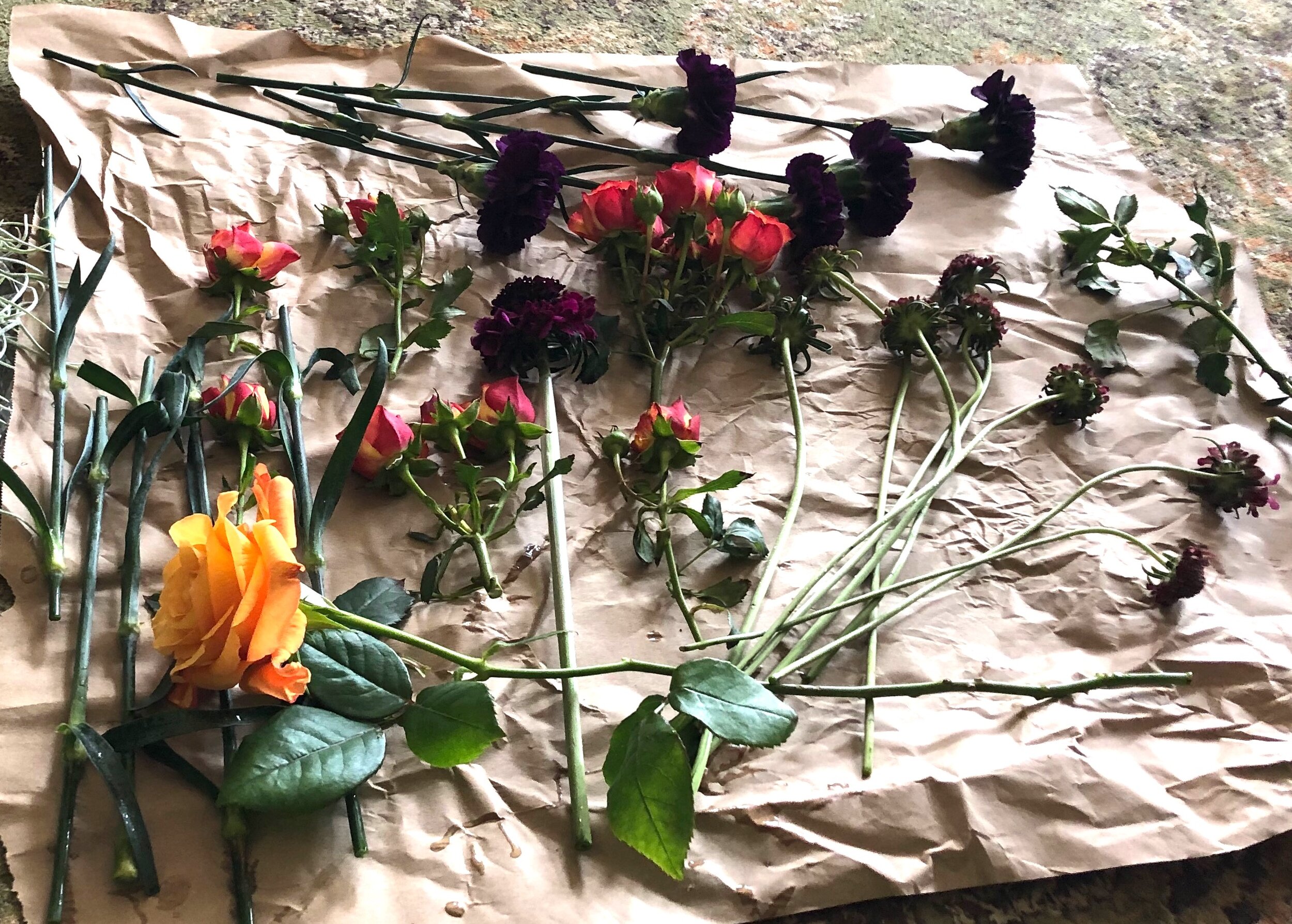From the Land of New Normal
While preparing this month's newsletter, I thought about all the emails that are likely in your inbox. News updates with numbers and statistics and mask tutorials. I thought about the Nextdoor posts where neighbors, under the guise of being helpful, tout their righteous indignation like peacock feathers.
What if you opened something that didn't tell you to calm down, to buck up, to express gratitude, to feel your sorrow.
Instead, what if you read something that said, "Hey, here's some stuff I've been reading lately. And I thought it might be of interest to you."
IMG DESCR: cut stems of a variety of colors and flowers spread on a large square of brown paper
Photo credit: Janine Kovac
Memoir as a Flower Arrangement
This essay appears in the March edition of Writer's Digest as part of their 5-minute Memoir feature. Originally it was my artist's statement as part of my 2019 residency application for the Mineral School. Last October during a residency at WordSpaceStudios I dusted it off, made some adjustments, and submitted it for Writer's Digest. (Thank you to WordSpaceStudios' 2020 resident Marianne Lonsdale for the WD tip!) You can read the full article here, but in the meantime, here's a teaser.
“In the early days of our marriage—before kids, before I was a serious writer—my husband invented a little game he called the Flower Challenge. The goal was for me to make floral arrangements out of twenty or so mismatched flowers he’d plucked from the dregs of the florists’ discount buckets near his downtown office. These were the flowers that didn’t get sold during the week, the ones that would probably wilt before the florists opened again on Monday morning. At home, my husband would proudly present a ragtag cluster that looked like fodder for the compost bin and the Flower Challenge would begin. ”
LOVE IT:
Milan Kundera
I read The Unbearable Lightness of Being in the late 80's, after seeing the movie with Daniel Day Lewis and Juliette Binoche. The movie was enjoyable (although Kundera had strong words about it) but the book knocked me on my ass. It changed the way I thought about language, human nature, and the structure of narrative.
In 1993 I moved to Italy. There were no English bookstores and so I read the same two books over and over. One was The Unbearable Lightness of Being. (The other was Anna Karenina.) I read and re-read Unbearable to the point where I could read the Italian translation.
After one of the read-throughs, I had a light bulb moment. This was not the story of one love affair in Czechoslovakia and the another in Switzerland. This was a metaphor of light and weight, of what we crave versus what we are.
Last weekend, yearning for a bit of literary comfort food, I re-read Unbearable along with another favorite, Immortality (in which Kundera inserts himself as a novelist writing the very book we are reading). The pages were yellowed and the spines were creased. It was like visiting an old friend without the Zoom connection.



